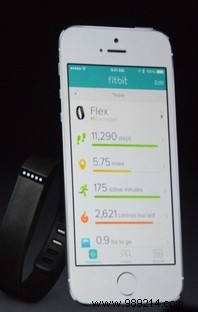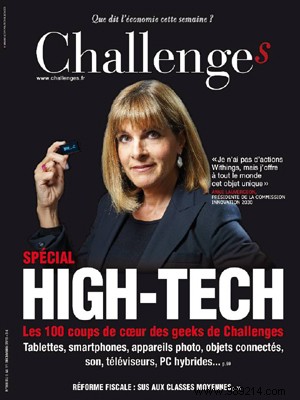
Since its launch, I have participated in the Nutrinet study, which aims to collect essentially nutritional information in order to better determine how diet and physical activity can influence the general state of health of people. Regularly, I am therefore called upon to answer questionnaires on a fixed or one-off date on a planned subject.
At the end of May 2014, a new "Connected devices" questionnaire was submitted to Nutrinautes:
Indeed, more and more various measurement tools transmitting their results on the Internet, appear in our daily lives:it can be a question of measuring one's weight, one's body fat, one's blood pressure, one's number of steps, etc. Obviously, this can be useful within the framework of this large research program.
A few months ago, we saw everywhere Anne Lauvergeon, president of the "Innovation 2030" commission and former boss of Areva, extolling the merits of the "internet of things" in particular through the Pulse sensor of Withings (made in France !). This small device that easily hides in a pocket is multifunctional:pedometer, calorie counter, calculation of elevation and distance traveled, analysis of heart rate and sleep cycles! Everything to take care of you and avoid cardiovascular accidents!

Soon, we will go even further since researchers are developing "smart" swimsuits with almost invisible electrodes measuring this same information before transmitting it via Bluetooth to your smartphone.
All these technological innovations are part of what is called "digital health" which we seek to develop in order to limit the exponential health expenditure which is also explained by the fact of the increase in life expectancy. Samsung and Apple, smartphone leaders have grasped the challenge and are developing apps to monitor your health. SAMI from Samsung and HealthKit , or "health kit", at Apple, soon to be integrated into a connected bracelet, and here we are letting these companies collect, analyze and store a mass of data that is very personal to us. Is it serious doctor?!
Yes, it is dangerous insofar as French legislation on personal medical data has not anticipated or integrated the arrival of these connected sensors. The CNIL must get to work, and quickly, because it will take months to issue legislation. In the meantime, insurers, for example, will be able to use this information to adapt the proposed rate according to the risks...
We are here in ethical issues and respect for privacy that will be debated, because if we are certainly in the infancy, the development of these connected devices will be rapid. However, in the event of a medical problem, do not hesitate to consult your doctor, natural person!